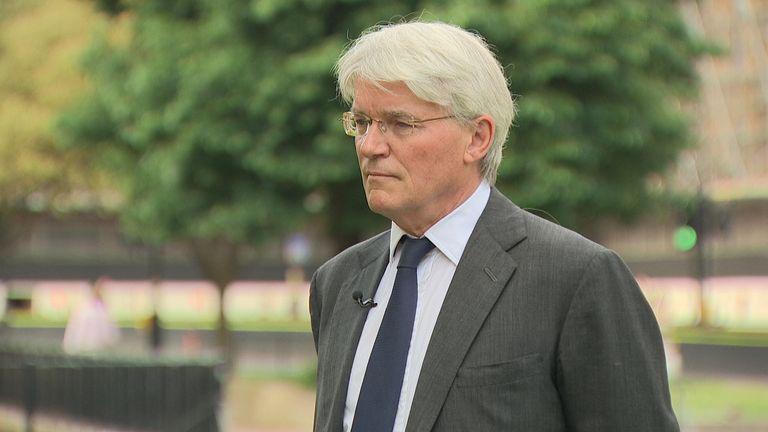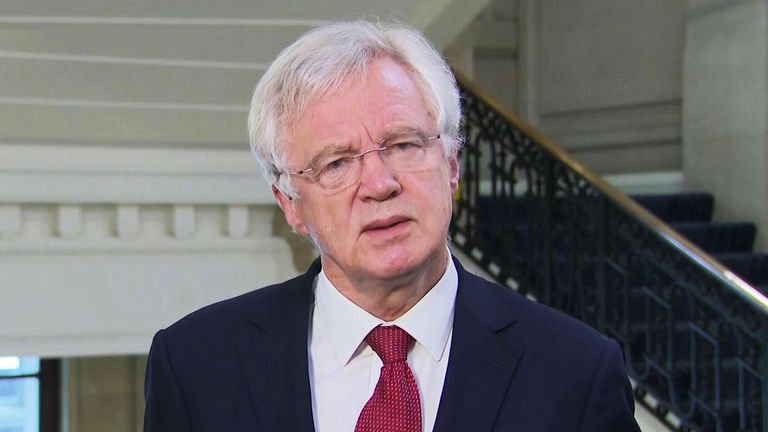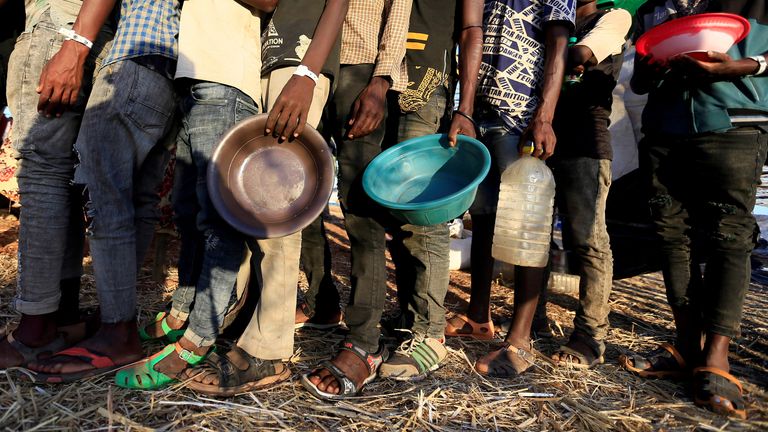Boris Johnson could narrowly avoid a rebellion by some of his own Conservative MPs as a vote over cuts to the foreign aid budget hangs in the balance.
Thirty Tories, including former prime minister Theresa May and four other cabinet ministers, were backing a rebellion against the £4bn reduction and had hoped to force a vote on the matter.
A Labour source has told Sky News that it is “all but certain” that House of Commons clerks have ruled that the amendment, which was proposed to the Advanced Research and Innovation Agency Bill, is not in scope.
But Conservative MP and former international development secretary Andrew Mitchell says the Speaker is yet to decide whether to accept the tabled amendment and allow a vote to take place this evening.
Chief backbench rebel Mr Mitchell told Sky News: “I don’t know where this information is coming from, I think it is being spun, but I have just literally come out of a meeting with Mr Speaker where we have been putting our viewpoint to him – and I know that Mr Speaker has not yet made a decision.”
Under parliamentary procedure, Commons Speaker Sir Lindsay Hoyle gets to decide whether to select amendments and allow votes on them based on the advice of his clerks.
The proposed amendment intended to make the government commit to reinstating the 0.7% target from next year – from the funding for this new “high-risk” science agency which he obscure legislation would create – if it is not met through alternative means.
Britain’s aid spending was cut by the chancellor last November in what was intended to be a temporary move, but without a vote in parliament. Mr Sunak told MPs at the time that keeping it at the higher level “cannot be justified to the British people”.
One Tory rebel said: “There is a whiff of disrespect for the House of Commons that the government was so keen to avoid a vote on the cut. We are supposed to be a democracy.”
Speaking to Sky News on Monday, Conservative former minister David Davis said the cut was “not necessary”, adding that it “does not make economic sense”.
“As you have heard from Lisa Nandy and others it will undermine our position – a very, very hard won position with so-called soft power, our respect in the world if you like – it will undermine that too.
“But for me, the issue is about lives, children’s lives, and frankly, even if it was an unpopular policy I would still stand up for it.
“I don’t want to be a member of a government or a supporter of a government that is effectively deciding to lead to tens of thousands of deaths of small children,” he said.
Just under £10bn is to be allocated to departments for foreign aid spending in 2021-22, down from more than £14bn in 2019-20.
Labour’s shadow foreign secretary Lisa Nandy also called on the PM to change his mind over the matter.
“He (Boris Johnson) could change his mind, he could reverse this, he could just admit that cutting global aid in the middle of a pandemic is the wrong this to do.
“It is short-sighted, it is not in Britain’s interest and he could solve this very, very quickly,” she told Sky News.
But Solicitor General Lucy Frazer defended the government’s position.
“Last year we were the third largest donor globally in terms of international aid, so we really do pay a significant amount to help the world generally.
“And even without the 0.7% this year, we will be investing £10bn – and that is really important.
“But we are in the middle of a pandemic and it is really important that we support the effort here as well,” she told Sky News.
Polling last year suggested two-thirds of the public backed a cut to foreign aid, due to financial challenges at home.




